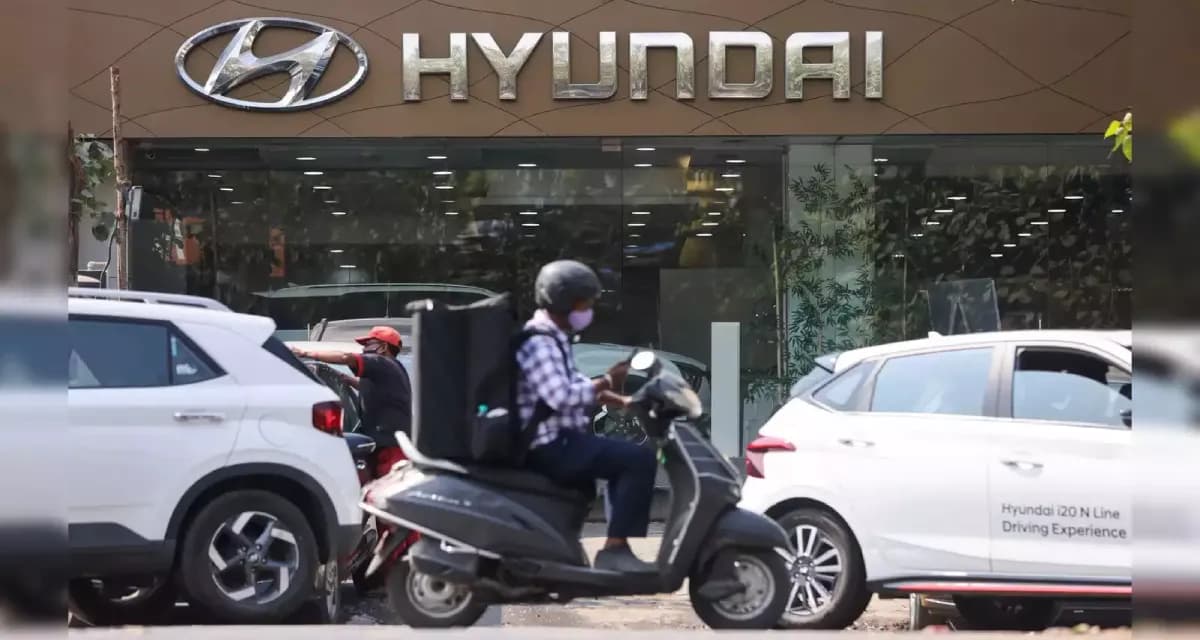What’s in store for the Indian by Hyundai? Well, Hyundai doesn’t plan to limit itself to the production of vehicles rather it has pledged to take quality healthcare to India’s highest altitudes. With 10 Telemedicine Centres and 4 Mobile Medical Units across 4 states and 2 union territories in India, Hyundai’s dedication is unmatched. These initiatives, part of HMIF’s "Sparsh Sanjeevani" healthcare program, are aimed at providing vital medical services to areas that typically have little to no access to healthcare.
Addressing Healthcare in Challenging Regions
The areas covered by these new services are not just remote but also include some of the most challenging terrains in India. From the high-altitude regions of Jammu & Kashmir and Ladakh to the rural areas of Himachal Pradesh, the telemedicine centers will allow people in these underserved regions to receive essential medical consultations. The mobile medical units will also be deployed in Haryana, Gujarat, Punjab, and Jammu & Kashmir, further expanding the reach of healthcare services in places where medical facilities are sparse or distant.
The telemedicine centers were inaugurated by Prataprao Jadhav, India’s Union Minister of State for Health and Family Welfare, at an event in New Delhi. These centers will connect patients in remote locations with medical professionals via video calls, allowing them to receive expert advice without needing to travel great distances to a hospital.
What Are Telemedicine Centers and Mobile Medical Units?
Hyundai’s telemedicine centers are designed to be easy to use, even in rural areas with limited medical infrastructure. At each center, patients are assisted by on-site nurses who facilitate video consultations with specialist doctors. Following the consultations, nurses provide necessary medications to patients, allowing them to leave with both a diagnosis and treatment plan in hand. The service is available for a minimal charge of ₹100 per patient, making it affordable for those in rural communities.
In addition to these telemedicine centers, the Hyundai Foundation also operates mobile medical units. These are essentially clinics on wheels—vans outfitted with medical diagnostic tools and staffed by doctors. The mobile units will travel to villages and small towns where healthcare is scarce, providing free consultations and medicines. Each mobile unit is equipped to perform essential health checks, such as blood pressure tests, blood sugar level monitoring, and even tests for diseases like malaria and dengue. By reaching patients in these isolated areas, Hyundai is closing the gap between healthcare providers and the communities that need them the most.
A Commitment to Progress for Humanity
Hyundai Motor India’s Corporate Communication and Social Responsibility head, Puneet Anand, emphasized the importance of this initiative, noting that "good health is the cornerstone of holistic development." He explained that Hyundai’s global vision, "Progress for Humanity," drives the company's efforts to make meaningful impacts on people’s lives, especially in places that often get overlooked. By bringing healthcare services to regions like Jammu & Kashmir, Ladakh, and other remote areas, Hyundai is fulfilling its promise to deliver progress and care to communities across India.
The vehicles used in this initiative Hyundai Mighty vans have been specially converted into mobile medical units. These vehicles will navigate rough terrain to bring essential healthcare services directly to people’s doorsteps. According to Anand, these services are particularly valuable in regions where people would otherwise need to travel long distances to receive medical care.
Government Support and Encouragement
The Union Minister of State for Health and Family Welfare, Prataprao Jadhav, praised Hyundai's efforts during the inauguration event. He expressed appreciation for the collaboration between Hyundai Motor India Foundation, TSL Foundation, and Karma Healthcare in making these healthcare services possible. Jadhav also acknowledged the importance of the initiative in providing vital medical services to rural populations. By reaching areas where healthcare is scarce or inaccessible, he believes that this initiative will make a lasting impact on people’s lives. "I am confident that this will bring a real change to the lives of many," he said.
Hyundai's Growing Healthcare Impact
Hyundai Motor India Foundation has been steadily growing its healthcare services since it first launched the Sparsh Sanjeevani initiative. With the addition of the 10 new telemedicine centers and 4 mobile medical units, HMIF now operates 50 telemedicine centers and 10 mobile medical units across India. These services collectively cater to a rural population of over 1.3 million people, ensuring that even the most remote communities have access to basic healthcare.
The telemedicine model also allows for follow-up consultations, making it a sustainable healthcare solution in these areas. Patients who require continued treatment or monitoring can return to the centers for follow-up care, ensuring that their health is properly managed over time.
In a country as vast and diverse as India, access to healthcare can be a significant challenge for many rural communities. Hyundai Motor India Foundation’s efforts to bridge this gap through telemedicine centers and mobile medical units are commendable and much needed. These initiatives bring healthcare services to regions that are often forgotten, ensuring that even the most remote populations can receive medical care when they need it. By leveraging technology and mobile units, Hyundai is not just treating patients but transforming lives across India’s most underserved regions.
Through initiatives like Sparsh Sanjeevani, Hyundai continues to show that its commitment to "Progress for Humanity" goes beyond the automotive industry—it's about improving the lives of people everywhere, no matter where they live.
Also Read:
